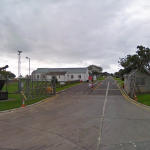The low number of rape cases that end up in court has led to a “crisis in public trust”, the director of public prosecutions (DPP) has said.
The Crown Prosecution Service (CPS) has today set out how it plans to boost the number of cases coming to court in an update on a five-year plan launched in July 2020.
Figures released earlier this year showed that in the 12 months to September 2021, only around 820 (1.3%) of the record 63,136 reported rape offences logged by police resulted in a suspect being charged.
DPP Max Hill QC said: “Rape is a truly devastating and life-changing crime.
“Victims of this most invasive abuse can suffer lasting trauma, and too often their experience of the criminal justice system adds to their suffering. I am determined to change that.
“Without doubt there is a crisis of public trust in the criminal justice response to rape and crimes of violence against women and girls. Too few victims are seeing justice done.
“The CPS has looked at every aspect of our work so we can drive up the number of rape cases going to court, and build confidence that all rape victims and suspects are treated fairly.
Police officers charged over sharing offensive messages with Sarah Everard’s killer named
Sarah Everard: Three officers charged over sharing racist and misogynistic messages with killer Wayne Couzens
Three Met Police officers face charges for sharing racist and misogynistic messages with killer Wayne Couzens
“We want to secure justice in every possible rape case, which means increasing significantly the number we bring to court, year on year.”
Mr Hill told the PA news agency he was “frustrated” that damage to public confidence in the police, caused in part by the rape and murder of Sarah Everard by a serving officer, may make victims reluctant to come forward and support prosecutions.
“I am… deeply frustrated that for people at their time of greatest need, they may question whether it is right to come forward, to make a complaint to the police.”
Home Office figures for the year to September 2021 suggested that more than 40% of the rape cases that were closed did not proceed because the victim did not support further police action.
New measures have been trialled in five areas to make prosecutors and the police work more closely together from the early stages of an investigation, and scrutiny panels that review cases where officers have decided to take no further action to ensure that they made the correct choice.
An additional 115 prosecutors have been trained in how to deal with rape and sexual assault cases, and 70 members of staff will be moved to specialist jobs in the five pilot areas – London South, North East, South West, Wales and the West Midlands.
The use of special measures for victims to be shielded from public view in court is also being promoted, as well as pre-recording of evidence.






















